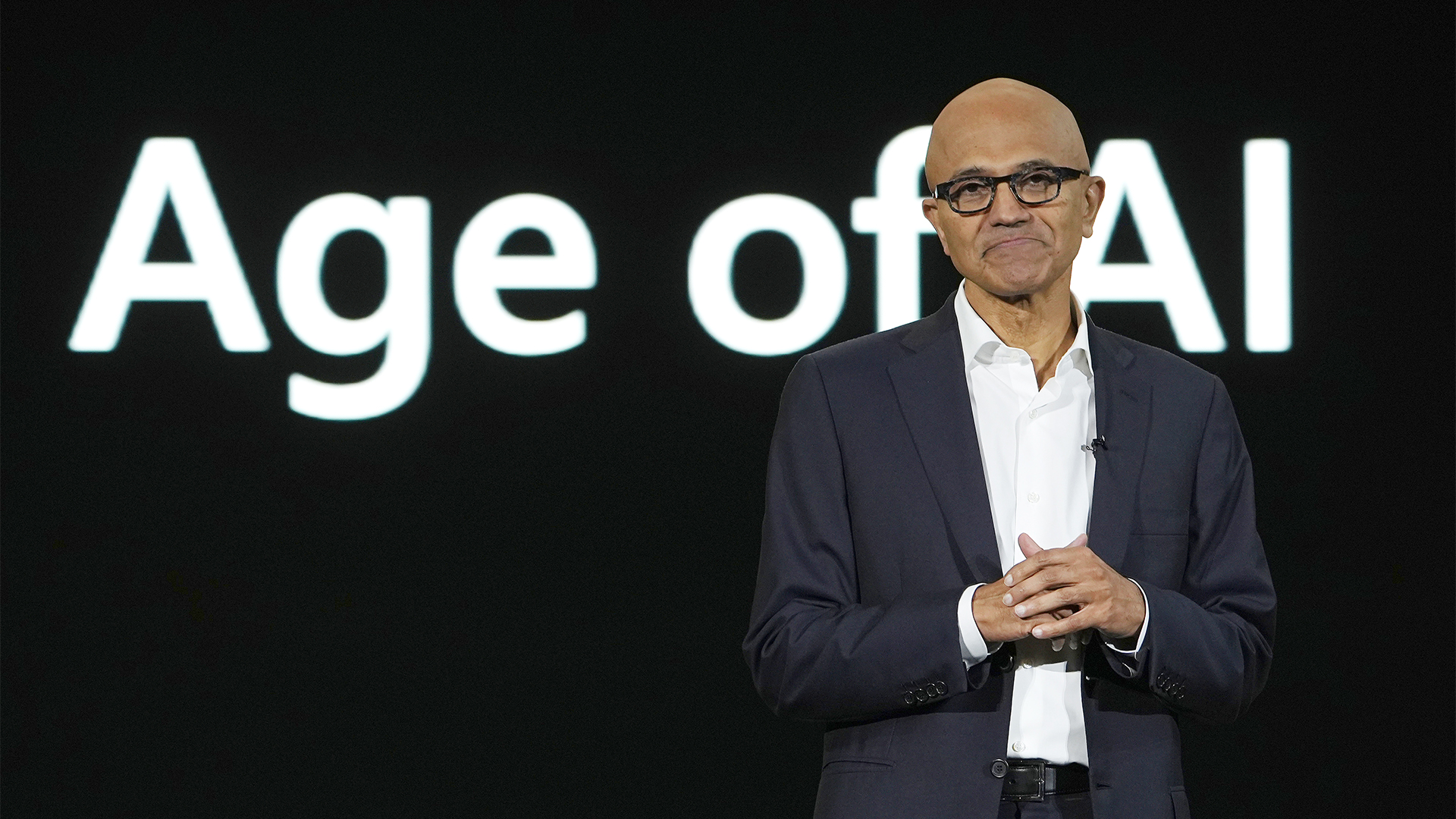Why Microsoft is spending billions on AI and cloud computing in Europe
Microsoft is contending with huge demand for cloud computing services and lingering concerns about data sovereignty - and it’s spending big to stay ahead of competition


Microsoft has announced plans to quadruple its spending on cloud computing and AI infrastructure in Spain, part of a wave of investments the tech giant has been making across Europe in recent months.
The software giant said it is going to invest $2.1bn in AI and cloud infrastructure in Spain by 2025. It’s Microsoft's largest investment in Spain in its 37 years of operating there.
As part of the move, Microsoft will open a data center cloud region located in Madrid, and plans to open another data center in Aragon that will serve European companies and public bodies. Across both these two sites, Microsoft said it will provide its entire range of AI offerings to Spanish and European companies.
These investments can make quite a difference even outside of the technology sector. The data centers in Spain could add €8.4bn to Spanish GDP and contribute to the creation of 69,000 jobs in the period up to 2030, according to figures from tech analyst IDC.
Microsoft said it will work with the Spanish government on responsible AI and support industry and government cyber security, for example, by working with the Spanish National Cybersecurity Institute and offering access to telemetry and information on potential threats and cyber attacks.

It’s certainly not the first big cloud and AI investment Microsoft has showcased recently.
Earlier this month, it unveiled plans to invest €3.2bn in Germany, which again will be its largest investment in the country in its 40-year history of operating there.
Get the ITPro daily newsletter
Sign up today and you will receive a free copy of our Future Focus 2025 report - the leading guidance on AI, cybersecurity and other IT challenges as per 700+ senior executives
The tech giant plans to expand its data centers for cloud and AI applications and train more than 1.2 million people in digital skills by the end of 2025. Over the next two years, the company will expand its cloud region in Frankfurt am Main and its newly planned infrastructure in North Rhine-Westphalia.
Microsoft said German companies and startups using its AI service include Siemens, which has developed the Siemens Industrial Copilot with the Azure OpenAI Service, and Commerzbank which is developing an AI banking avatar using Microsoft Azure AI.
But that’s not all.

In November 2023, Microsoft announced it will more than double its data center footprint in the UK, with plans to spend £2.5 billion over the next three years and bring 20,000 of the “most advanced” GPUs to the UK by 2026.
As part of the spending – again the single largest investment in its 40-year history in the country - Microsoft said it will grow its data center footprint across sites in London and Wales, with potential expansion into northern England.
At the time, Microsoft said it would also be extending its Accelerating Foundation Models Research (AFMR) program to include prioritized access to GPUs for the UK’s science and research community, and train one million people with the skills they need to build and work with AI, including the first Professional Certificate on Generative AI.
Data sovereignty and cloud demands are top of mind for Microsoft
So why is Microsoft investing so much, so fast? Part of the answer is the sheer demand the tech giant is seeing from European customers.
While cloud computing is not growing at the same incredible rates compared to previous years, for most organizations the direction of travel is still only towards the cloud.
RELATED WHITEPAPER

Worldwide spending on cloud computing is expected to top $1.3tn by 2027 according to predictions from analyst IDC. Microsoft’s Azure accounts for about a quarter of cloud infrastructure spending, according to Canalys, and that means building a lot of data centers to keep up with demand – especially if the AI boom continues because.
Where those data centers are matters, too, and is likely to get more important.
Data sovereignty is an increasingly big issue for all sorts of organizations. That means making sure their data is being kept in the right physical place to make sure that organizations are meeting data protection obligations and ensuring that data is protected from the prying eyes of other governments.
According to tech analyst Gartner, by 2028, half of multinationals will have a digital sovereignty strategy, up from just 10% now. That means having data centers wherever the customers are, because they will increasingly want to keep their data close, too.
Steve Ranger is an award-winning reporter and editor who writes about technology and business. Previously he was the editorial director at ZDNET and the editor of silicon.com.
-
 Bigger salaries, more burnout: Is the CISO role in crisis?
Bigger salaries, more burnout: Is the CISO role in crisis?In-depth CISOs are more stressed than ever before – but why is this and what can be done?
By Kate O'Flaherty Published
-
 Cheap cyber crime kits can be bought on the dark web for less than $25
Cheap cyber crime kits can be bought on the dark web for less than $25News Research from NordVPN shows phishing kits are now widely available on the dark web and via messaging apps like Telegram, and are often selling for less than $25.
By Emma Woollacott Published
-
 The Wiz acquisition stakes Google's claim as the go-to hyperscaler for cloud security – now it’s up to AWS and industry vendors to react
The Wiz acquisition stakes Google's claim as the go-to hyperscaler for cloud security – now it’s up to AWS and industry vendors to reactAnalysis The Wiz acquisition could have monumental implications for the cloud security sector, with Google raising the stakes for competitors and industry vendors.
By Ross Kelly Published
-
 Microsoft’s EU data boundary project crosses the finish line
Microsoft’s EU data boundary project crosses the finish lineNews Microsoft has finalized its EU data boundary project aimed at allowing customers to store and process data in the region.
By Nicole Kobie Published
-
 Microsoft hit with £1 billion lawsuit over claims it’s “punishing UK businesses” for using competitor cloud services
Microsoft hit with £1 billion lawsuit over claims it’s “punishing UK businesses” for using competitor cloud servicesNews Customers using rival cloud services are paying too much for Windows Server, the complaint alleges
By Emma Woollacott Published
-
 SAP launches sovereign cloud service for UK customers
SAP launches sovereign cloud service for UK customersNews The move makes SAP the latest to roll out a sovereign cloud service for UK customers
By George Fitzmaurice Published
-
 Microsoft's Azure growth isn't cause for concern, analysts say
Microsoft's Azure growth isn't cause for concern, analysts sayAnalysis Azure growth has slowed slightly, but Microsoft faces bigger problems with expanding infrastructure
By George Fitzmaurice Published
-
 The Open Cloud Coalition wants to promote a more competitive European cloud market – but is there more to the group than meets the eye?
The Open Cloud Coalition wants to promote a more competitive European cloud market – but is there more to the group than meets the eye?Analysis The launch of the Open Cloud Coalition is the latest blow in a war of words between Microsoft and Google over European cloud
By Nicole Kobie Published
-
 Data center constraints pinch as Microsoft reports soaring AI demand
Data center constraints pinch as Microsoft reports soaring AI demandNews The firm’s CEO Satya Nadella remained confident that supply and demand would start matching up later in the fiscal year
By George Fitzmaurice Published
-
 Microsoft slams Google’s ‘shadow campaigns’ as feud over cloud regulation escalates
Microsoft slams Google’s ‘shadow campaigns’ as feud over cloud regulation escalatesNews Google is being accused of creating an “astroturf” organization that is driven by ulterior motives
By George Fitzmaurice Published